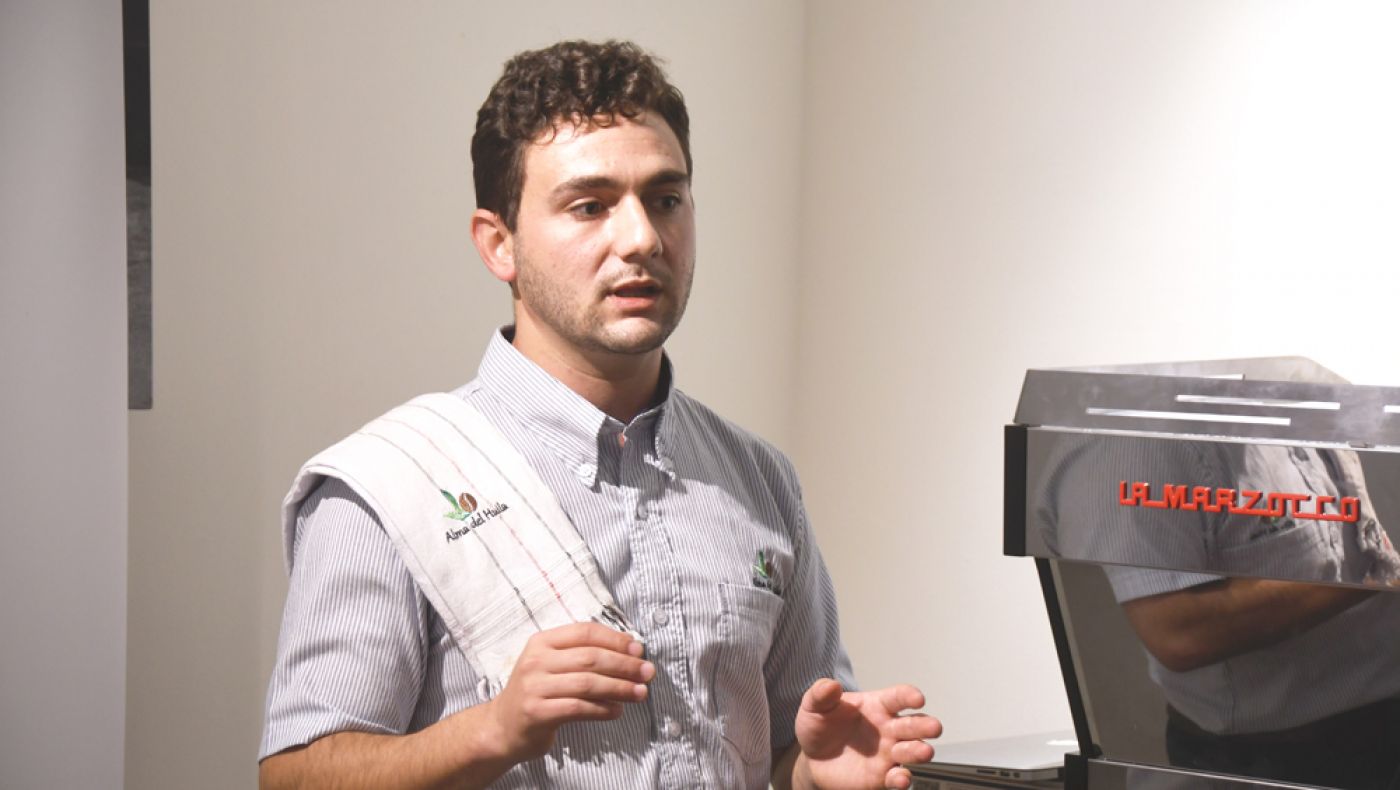
Danilo Pérez, a farmer from Huila
Danilo Pérez is the third generation of a family of coffee producers in Huila, Colombia. He manages 5 farms and a processing station, leading implementation of a new approach to coffee farming and quality control at his holdings. Within the last years, Alma de Huila, his family brand, has become one of the most recognisable and reputable specialty coffee producers of the region. Below we share some of his “business insights”.
Why did Danilo decide to focus on specialty?
The history started 7 years ago when he got the idea of opening a tourist house at one of his farms but he did not speak fluent English in order to wait on his guests. So he decided to travel to Australia to improve his English and while he was in Australia, he worked as a barista in a specialty coffee shop. It was there that he discovered the immensity of the specialty coffee world and the frontiers it opened for his farms.
Inspired by a wide range of new coffee flavours and aromas, Danilo prepared and passed an exam to become a Q-Grader.
Meeting roasters and producers from different countries, he discovered new processing methods, very different from what his family used to do. He discovered new coffee varieties. He discovered that roasting could kill a lot of positive characteristics of Colombian coffee. He discovered that the only way to achieve sustainable coffee production was a balanced and transparent relationship between farmers, importers and roasters.
What were the first steps to change the production?
- Organize the policy of coffee quality control according to the requirements of the Federación Nacional de Cafeteros to be allowed to export specialty coffee.
- Explain the new approach to the whole team: focusing on quality, not quantity.
- Adapt coffee processing to the region´s climatic parameters.
- Agree on new values with all the family members.
What has been done so far?
- Alma del Huila has been converted into a 100% specialty coffee producer within 7 years.
- Alma de Huila has implemented the environmental management quality system.
- Alma de Huila performs several models of coffee processing and drying according to different protocols of fermentation.
- Alma de Huila follows a traceable distribution chain: from the farmer to the roaster.
- Danilo is cultivating new coffee varieties at his farms: geisha, pink bourbon, typica.
- Danilo shares knowledge and experience with other farmers in Huila promoting sustainable and dignified coffee production.
What are the plans for the future?
- Continue researching new fermentation processes.
- Maintain the rhythm of reforestation.
- Convert the distribution chain into a stable community for all its members.
- Open an association of specialty coffee producers in Huila to share knowledge and other resources with each other.
Last week Mare Terra Institute in collaboration with La Marzocco Spain organized an open meeting with Danilo Pérez in Barcelona. There were more than 50 roasters and baristas who came to listen to Danilo and to cup his experimental coffees.
And we hope this article is interesting for those who could not attend and meet Danilo in person.

